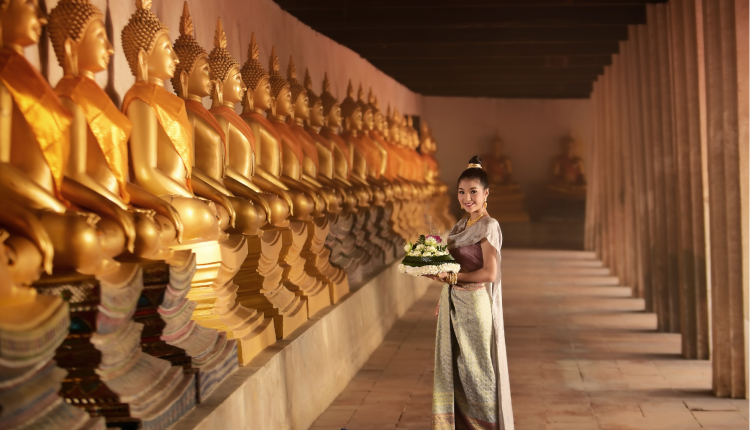Traditional Gifts that Bring Good Luck in Asia
With the season of giving just around the corner, what better way to spread joy and good fortune than to give gifts, and here in Asia we have a variety of traditions when it comes to gift giving. Across Asia and in countries such as Vietnam, Thailand, Nepal, Tibet, India, Japan, and Indonesia, gifts can carry profound meanings, that are often rooted in cultural beliefs and symbols. So before you start your present shopping, take a look at how we do it in Asia and maybe add some Asian traditions to your gift giving during this festive season.

Vietnam – Li Xi (Lucky Money):
In Vietnamese culture, ‘Li Xi’ or Lucky Money, has its roots in the Chinese term ‘lì shì’ which translates as lucky. This traditional practice involves placing a sum of money into a red envelope, which is then gifted to children during the Lunar New Year. The act symbolizes wishes for luck, health, and positive experiences in the upcoming year. For the recipient. The currency enclosed in the Lucky Money envelope is typically new and of low face value, serving just as a symbolic representation of growth and success.

Thailand – Phuang Malai (Floral Garlands):
Phuang Malai, or Floral Garlands, are considered to be a symbol of good luck in Thai culture. The carefully crafted garlands, made from flowers like jasmine and marigold, convey good wishes and blessings. Often given as a gesture of respect, these garlands are also exchanged during special occasions, bringing positive energy and joy to the recipient’s life. In essence, giving or receiving Phuang Malai goes beyond the physical gift—it carries with it a cultural and spiritual significance that enhances the positive energy and well-being of both the giver and the recipient, and in a truly beautiful way.

Indonesia – Balinese Barong mask
A traditional lucky charm gift in Bali often takes the form of a beautifully crafted wooden mask or figurine representing the Barong, which is a revered protective spirit in Balinese mythology. The Barong is believed to bring good fortune and ward off evil spirits. Gifting such a charm symbolizes a wish for the recipient to be safeguarded and blessed. These intricately carved charms are exchanged as cherished tokens of goodwill and protection and today serve as a tangible connection to Bali’s rich spiritual heritage.

India – Diya (Oil Lamp):
The Diya lamp is an oil lamp that is typically lit during festivals and auspicious occasions. The Diya, once lit, symbolizes the victory of light over darkness. Gifting a Diya is a gesture of wishing prosperity, knowledge, and positivity upon the recipient. The warm glow of the lamp not only illuminates homes but also signifies the dispelling of ignorance and the presence of divine blessings. As a traditional and timeless symbol, the Diya lamp connects individuals to their cultural roots, making it a thoughtful and auspicious gift.

Japan – Omamori (Amulets):
The Omamori sachet stands as a revered emblem of protection and fortune within Japanese traditions. Typically found at Shinto and Buddhist shrines, these amulets are thought to encapsulate divine blessings, and act as a protective charm in challenging times. Presenting someone with an Omamori goes beyond a simple gift, it embodies a heartfelt desire for their prosperity, safety, and success. The meticulous artistry and spiritual depth woven into each sachet enhance its significance, making it a unique, valued, and meaningful gift.

Nepal and Tibet – Dar Cho (Tibetan Prayer flag)
The Prayer Flag, known as Dar Cho, is placed in hope as a way of encouraging goodwill amongst all people. Often placed on posts or at high points, the prayer flags are adorned with mantras, symbols and prayers that combined are believed to promote peace, wisdom and compassion amongst all people where the wind blows. The word ‘Dar’ means longevity, health and wealth, and ‘Cho’ means all people, so with each flutter of the flag, more goodwill is shared amongst people. Gifting a Prayer Flag is seen as a heartfelt gesture, one that expresses a sincere desire for the recipient’s well-being, peace, and prosperity.
This season, as you embark on the journey of giving, consider these traditional Asian gifts to not only share good luck but also celebrate the rich cultural heritage of these diverse and vibrant nations. May your gifts carry the warmth and blessings of centuries-old traditions.

